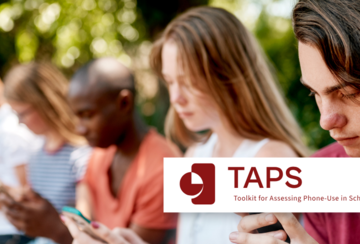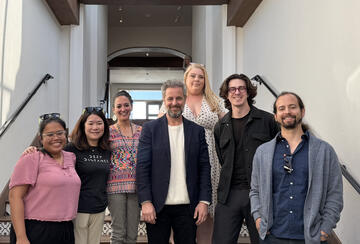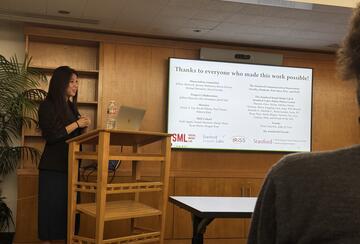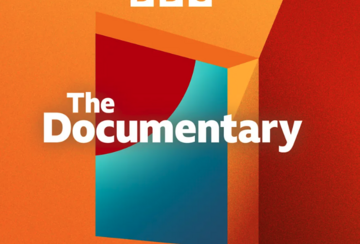Remove
Afghanistan
Remove
Albania
Remove
Algeria
Remove
Andorra
Remove
Angola
Remove
Antigua & Barbuda
Remove
Argentina
Remove
Armenia
Remove
Australia
Remove
Austria
Remove
Belgium
Remove
Belize
Remove
Brunei
Remove
Canada
Remove
Caribbean
Remove
China
Remove
Denmark
Remove
Eastern Europe
Remove
Northeast Asia
Remove
Azerbaijan
Remove
Bahamas
Remove
Bahrain
Remove
Bangladesh
Remove
Benin
Remove
Bolivia
Remove
Bosnia & Herzegovina
Remove
Burma
Remove
Central America
Remove
Central Europe
Remove
Costa Rica
Remove
Cyprus
Remove
Czech Republic
Remove
Estonia
Remove
Fiji
Remove
Japan
Remove
Mexico
Remove
Oceania
Remove
Portugal
Remove
Barbados
Remove
Belarus
Remove
Bhutan
Remove
Botswana
Remove
Brazil
Remove
Bulgaria
Remove
Cambodia
Remove
Egypt
Remove
El Salvador
Remove
Finland
Remove
France
Remove
Germany
Remove
Iberian Peninsula
Remove
Kiribati
Remove
Mongolia
Remove
North America
Remove
South Asia
Remove
Spain
Remove
United States
Remove
Burkina Faso
Remove
Chile
Remove
Croatia
Remove
Cuba
Remove
East Timor
Remove
Georgia
Remove
Greece
Remove
Guatemala
Remove
Hungary
Remove
India
Remove
Iran
Remove
Latvia
Remove
Marshall Islands
Remove
North Korea
Remove
Scandinavia and Baltic Rim
Remove
South America
Remove
Southeast Asia
Remove
Burundi
Remove
Colombia
Remove
Dominica
Remove
Honduras
Remove
Iceland
Remove
Indonesia
Remove
Iraq
Remove
Kazakhstan
Remove
Kosovo
Remove
Liechtenstein
Remove
Lithuania
Remove
Maldives
Remove
Micronesia
Remove
South Korea
Remove
Western Europe
Remove
Cameroon
Remove
Dominican Republic
Remove
Ecuador
Remove
Ireland
Remove
Israel
Remove
Kyrgyzstan
Remove
Laos
Remove
Macedonia
Remove
Nauru
Remove
Nepal
Remove
Nicaragua
Remove
Norway
Remove
Poland
Remove
Taiwan
Remove
Cape Verde
Remove
Grenada
Remove
Guyana
Remove
Italy
Remove
Jordan
Remove
Malaysia
Remove
Moldova
Remove
Montenegro
Remove
New Zealand
Remove
Pakistan
Remove
Panama
Remove
Slovakia
Remove
Sweden
Remove
Central African Republic
Remove
Haiti
Remove
Kuwait
Remove
Luxembourg
Remove
Palau
Remove
Paraguay
Remove
Philippines
Remove
Romania
Remove
Russia
Remove
Slovenia
Remove
Sri Lanka
Remove
Chad
Remove
Jamaica
Remove
Lebanon
Remove
Malta
Remove
Papua New Guinea
Remove
Peru
Remove
Serbia
Remove
Singapore
Remove
Switzerland
Remove
Tajikistan
Remove
Comoros
Remove
Libya
Remove
Monaco
Remove
Samoa
Remove
St. Kitts & Nevis
Remove
Suriname
Remove
Thailand
Remove
Turkmenistan
Remove
D.R. Congo
Remove
Morocco
Remove
Netherlands
Remove
Solomon Islands
Remove
St. Lucia
Remove
Ukraine
Remove
Uruguay
Remove
Vietnam
Remove
Congo
Remove
Oman
Remove
San Marino
Remove
St. Vincent & the Grenadines
Remove
Tonga
Remove
Uzbekistan
Remove
Venezuela
Remove
Côte d'Ivoire
Remove
Qatar
Remove
Trinidad & Tobago
Remove
Tuvalu
Remove
United Kingdom
Remove
Djibouti
Remove
Saudi Arabia
Remove
Vanuatu
Remove
Vatican City
Remove
Equatorial Guinea
Remove
Syria
Remove
Eritrea
Remove
Tunisia
Remove
Ethiopia
Remove
Turkey
Remove
Gabon
Remove
United Arab Emirates
Remove
Gambia
Remove
Yemen
Remove
Ghana
Remove
Guinea
Remove
Guinea-Bissau
Remove
Kenya
Remove
Lesotho
Remove
Liberia
Remove
Madagascar
Remove
Malawi
Remove
Mali
Remove
Mauritania
Remove
Mauritius
Remove
Mozambique
Remove
Namibia
Remove
Niger
Remove
Nigeria
Remove
Rwanda
Remove
Säo Tomé & Príncipe
Remove
Senegal
Remove
Seychelles
Remove
Sierra Leone
Remove
Somalia
Remove
South Africa
Remove
South Sudan
Remove
Sudan
Remove
Swaziland
Remove
Tanzania
Remove
Togo
Remove
Uganda
Remove
Zambia
Remove
Zimbabwe
Remove
The Americas
Remove
Asia-Pacific
Remove
Europe
Remove
Middle East and North Africa
Remove
Russia and Eurasia
Remove
Sub-Saharan Africa
Remove
2024 MIP Class
Remove
Admissions
Remove
Aging
Remove
Agricultural trade
Remove
AHPP Working Paper Series
Remove
Alumni
Remove
APARC In-House Series
Remove
Arms Control
Remove
Biofuels
Remove
Capstone
Remove
CDDRL 20th Anniversary
Remove
CDDRL Research in-brief
Remove
CDDRL Seminar Write-ups
Remove
Children's health
Remove
Class of 2024
Remove
Class of 2025
Remove
Conference Blog
Remove
Corruption
Remove
Courtesy Faculty
Remove
Democracy promotion
Remove
Early Childhood Development
Remove
Entrepreneurship Inside Government
Remove
European Union
Remove
GKC
Remove
GKC Leadership
Remove
Globalization
Remove
Graduation
Remove
Hacking for Defense (H4D)
Remove
Health
Remove
Health and the Environment
Remove
Hypertension
Remove
In the Classroom
Remove
Inclusion and Exclusion
Remove
Inequality
Remove
Infrastructure
Remove
International Law
Remove
Internship Blog
Remove
Israel Fellows
Remove
Masters in International Policy
Remove
Meet the Class
Remove
Migration and Citizenship (Society)
Remove
National Security Innovation Scholars
Remove
Obesity
Remove
Palm Oil
Remove
Profile
Remove
Race
Remove
Rule of Law
Remove
SAI
Remove
Shorenstein APARC Policy and Working Papers
Remove
Smoking
Remove
Social Media Lab
Remove
Staff
Remove
Takedown
Remove
Teaching Team
Remove
Technology
Remove
Technology, Innovation, and Great Power Competition
Remove
Vision Care
Remove
Agriculture
Remove
Agriculture policy
Remove
Arms Smuggling
Remove
Borders
Remove
Cap and Trade
Remove
Comparative effectiveness research
Remove
Culture
Remove
Democracy
Remove
Disaster response
Remove
Health care institutions
Remove
HIV/AIDS
Remove
Kyoto Protocol
Remove
Population health
Remove
State-building
Remove
Biosecurity
Remove
Business
Remove
Demographics
Remove
Diabetes
Remove
Elections
Remove
Health policy
Remove
Media
Remove
World Bank
Remove
Aquaculture
Remove
Bioterrorism
Remove
Cleantech
Remove
Coal
Remove
Discrimination
Remove
Disease
Remove
Health Care Reform
Remove
Human Rights
Remove
Investment
Remove
Military
Remove
Protectionism
Remove
World Trade Organization
Remove
Diplomacy
Remove
Economic Affairs
Remove
Electricity
Remove
Global Health
Remove
Homeland Security
Remove
Information Technology
Remove
Intelligence
Remove
NATO
Remove
Civil Wars
Remove
Climate
Remove
Education
Remove
Energy and Climate Policy
Remove
Ethnicity
Remove
Foreign Aid
Remove
Health Care
Remove
Institutions and Organizations
Remove
Negotiation
Remove
Climate change
Remove
Conflict
Remove
Energy Infrastructure
Remove
Entrepreneurship
Remove
Foreign Policy
Remove
Gender
Remove
Health Outcomes
Remove
Peacekeeping
Remove
Policy Analysis
Remove
Energy Services
Remove
Food Markets
Remove
History
Remove
Migration and Citizenship
Remove
Crime
Remove
Cybersecurity
Remove
Deforestation
Remove
Fossil Fuels
Remove
Islam
Remove
Nutrition
Remove
Trade
Remove
Fisheries
Remove
Food Security
Remove
Public Health
Remove
Drug trafficking
Remove
Hunger
Remove
Natural gas
Remove
Publication Series
Remove
Shorenstein APARC Studies with Stanford University Press
Remove
Innovation
Remove
Nuclear Energy
Remove
Religion
Remove
Nuclear policy
Remove
Poverty
Remove
Natural Resources
Remove
Renewable Resources
Remove
Science and Technology
Remove
Kidnapping
Remove
Oil
Remove
Water
Remove
Sustainable development
Remove
Missiles
Remove
Nuclear Risk
Remove
Nuclear Safety
Remove
Terrorism
Remove
Torture convention
Remove
Violence
Remove
Governance
Remove
International Relations
Remove
Health and Medicine
Remove
International Development
Remove
Security
Remove
Energy
Remove
Environment
Remove
Society
Remove
Walter H. Shorenstein Asia-Pacific Research Center
Remove
Center for Health Policy / Department of Health Policy
Remove
Center for International Security and Cooperation
Remove
Center on Democracy, Development, and the Rule of Law
Remove
Freeman Spogli Institute for International Studies
Remove
The Europe Center
Remove
Center on Food Security and the Environment
Remove
Stanford Center at Peking University
Remove
Bechtel Conference Center At Encina Hall
Remove
Internal Center (Content Staging)
Remove
Cyber Center
Remove
Center on China’s Economy and Institutions
Remove
Program on Energy and Sustainable Development
Remove
Korea Program
Remove
Southeast Asia Program
Remove
Stanford Program on Regions of Innovation and Entrepreneurship
Remove
China Program
Remove
Stanford Program on International and Cross-Cultural Education
Remove
Global Affiliates Program
Remove
Asia Health Policy Program
Remove
Program on Human Rights
Remove
Rural Education Action Program
Remove
Arab Reform and Development Program
Remove
Draper Hills Summer Fellows Program
Remove
Program on Poverty and Governance
Remove
Japan Program
Remove
Stanford International Crime and Violence Lab
Remove
Austrian and Central European Program
Remove
European Governance
Remove
Europe and the Global Economy
Remove
Migration
Remove
France and the Francophone World
Remove
Iberian Studies Program
Remove
Industrial Affiliates Program
Remove
Program on American Democracy in Comparative Perspective
Remove
Taiwan Program
Remove
GDPI
Remove
Student Programs
Remove
Global Populisms
Remove
Ford Dorsey Master's Program in International Policy
Remove
Leadership Academy for Development
Remove
Public Problem Solving Program
Remove
Internet Observatory Program
Remove
Cyber GTG
Remove
Mappingmilitants cisac
Remove
European Security Initiative
Remove
Russian Power and Purpose in the 21st Century
Remove
Stanford Impact Labs
Remove
Program on Turkey Website
Remove
Stanford Existential Risks Initiative
Remove
Sipr
Remove
REDI
Remove
World House
Remove
Leadership Network for Change Program
Remove
Cyber Test
Remove
Governance of Emerging Technologies
Remove
Stanford U.S.-Russia Forum
Remove
IUC Program
Remove
IUC Japan Program
Remove
GKC Program
Remove
TIP Program
Remove
DAL Program
Remove
Jan Koum Israel Studies Program
Remove
Abstracts
Remove
Blogs
Remove
Books
Remove
Book Chapters
Remove
Case Studies
Remove
Conference Memos
Remove
Commentary
Remove
Dissertations
Remove
Journal Articles
Remove
News
Remove
Policy Briefs
Remove
Q&As
Remove
Testimonies
Remove
White Papers
Remove
Reports
Remove
Working Papers
Remove
Annual Reports
Remove
Brochures
Remove
Newsletters






















